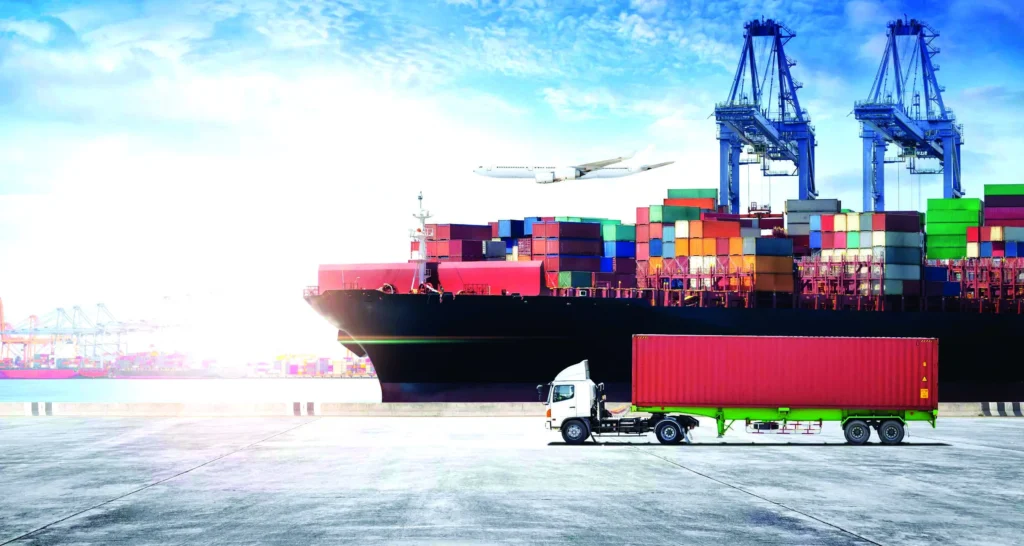Join us as we unravel the journey of resilience in the global logistics landscape and discover how forward-thinking companies are charting a course towards sustainable success amidst uncertainty.
In our interconnected world, logistics plays a pivotal role in facilitating seamless global trade. Yet challenges abound, from geopolitical tensions to pandemics and extreme weather. Amid this reality, resilience is paramount for logistics firms. This article examines the strategies and technologies driving resilience in the industry. Drawing insights from experts, we explore how companies bolster supply chains to ensure business continuity despite adversity.
Fortifying pharma
In a recent discussion with Manish Soin, Senior Vice President – Export Control & Customs, Asia Pacific, Siemens Healthineers, the spotlight was on the profound impact of global supply chain disruptions across sectors, including pharmaceuticals. Soin emphasized the critical need for resilience to navigate these challenges and ensure uninterrupted supply chains, mitigating business risks effectively.
He outlined key strategies and priorities essential for the pharmaceutical sector’s resilience. First and foremost, collaboration emerges as a cornerstone, emphasizing strong relationships and transparent communication with business partners to optimize resources and avert risks. Additionally, Soin highlighted the vulnerability of relying on a single supplier or logistics partner, urging diversification of the supplier base to enhance resilience. Furthermore, investment in technology, particularly in data analytics and AI tools, is imperative for optimising inventory and forecasting future risks. Effective risk management, encompassing comprehensive assessments and contingency plans, is underscored as pivotal for success. Lastly, he emphasized the importance of dedicated pharmaceutical supply chain infrastructure and operations, equipped with high-standard quality control techniques and domain expertise, to navigate and withstand challenging circumstances effectively. These insights offer a roadmap for pharmaceutical companies aiming to fortify their supply chains in an increasingly volatile global landscape.
Resilience strategies
Ajay Singh, Vice President, Supply Chain Management, Hindustan Platinum, delves into the dynamic strategies of logistics firms amidst pervasive supply chain disruptions. Singh notes that disruptions have become commonplace, necessitating a shift in risk mitigation approaches. He stresses the need for heightened visibility into supplier productivity and advanced tracking methods to manage lead times and global logistics variations effectively. Singh advocates for a supplier relationship management (SRM)
focused approach to combat stockouts amid geopolitical disruptions. Diversifying supplier networks and bolstering inventory, risk, and strategic sourcing practices are crucial steps, according to Singh. He underscores digital transformation’s pivotal role in enabling proactive communication and scenario planning to address potential disruptions comprehensively. Through diversification and digital initiatives, logistics firms can adeptly navigate disruptions. Singh emphasizes the importance of identifying supply chain weak points and developing contingency plans to ensure continuity amidst various crises. His insights underscore the necessity for logistics firms to adapt and innovate in response to the evolving landscape of supply chain resilience.
Enhancing resilience
Ratnesh Verma, CEO and Founder, Pidge, sheds light on how logistics firms are enhancing supply chain resilience amidst global disruptions. Verma underscores the substantial threat of supply chain disruptions, leading to significant revenue losses.
He identifies factors like port congestion, geopolitical tensions, and material shortages that exacerbate these challenges. Verma emphasizes technology’s pivotal role, advocating for cloud-based systems for real-time tracking and predictive analytics to foresee disruptions. He stresses decentralized solutions for data security and transparent collaboration. Tailored strategies are paramount for mitigating risks and ensuring uninterrupted operations. Verma’s insights highlight the importance of innovative approaches and technologies in navigating complex global supply chains and enhancing resilience in uncertain times.
Strengthening supply chains
In today’s globalized economy, supply chains span borders, amplifying their vulnerability to disruptions. Nitin Dixit, Supply Chain Lead, Project and Asset Logistics, Asia Pacific & Middle East, Shell India, underscores logistics’ critical role, where reliability outweighs speed and cost efficiency. Supply chain resilience mirrors hazard management, embodying anticipation, preparation, response, and recovery.
Logistics firms prioritize proactive risk management, monitoring global events, and assessing supplier vulnerabilities. Advanced tools, including scenario modeling, aid in informed decision-making and tailored mitigation. Dedicated response teams orchestrate adjustments, while logistics control towers, powered by AI and IoT, enable proactive identification of bottlenecks and disruptions.
Leading enterprises leverage extensive networks and technology to diversify risk through multimodal transportation. Mature continuity practices and tech investments are pivotal for resilience in today’s landscape. Embracing resilience ensures seamless continuity and lays the groundwork for sustainable success amidst evolving challenges.
In the dynamic realm of global logistics, resilience emerges as the linchpin for navigating turbulent waters. Through the integration of advanced technologies, proactive risk management, and strategic diversification, logistics companies fortify their supply chains against disruptions, ensuring seamless continuity and laying the foundation for sustainable success.
